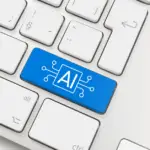In today’s rapidly evolving business landscape, the importance of a well-crafted learning journey cannot be overstated. As companies strive to remain competitive and agile, they must prioritize the continuous development of their workforce. A learning journey goes beyond traditional training programs; it is a strategic pathway that empowers employees to grow in their roles, adapt to new challenges, and align with the organization’s long-term goals. By focusing on personalized, multimodal, and celebratory elements within the learning journey, organizations can create dynamic and engaging experiences that not only enhance individual performance but also drive collective success. In this article, we’ll explore key design strategies that ensure your corporate learning journey is not just a series of events, but a transformative process that leads to sustained growth and innovation.
Personalized: The corporate learning journey aims to address workforce gaps, align with key strategic priorities, and demonstrate long-term success. The corporate learning journey is not a one-size-fits-all approach; it requires careful consideration of the unique challenges and opportunities that each organization faces. In today’s work environment, the norm is where employees often juggle multiple responsibilities and thus require flexible learning options that fit their schedules.
By tailoring learning initiatives to meet these specific needs, companies can foster a culture of continuous improvement and innovation. This approach not only enhances engagement and retention but also ensures that learners acquire the most relevant and applicable skills for their respective roles and career trajectories. Personalized learning allows employees to take ownership of their development, making it more likely that they will engage deeply with the material and apply what they learn in their daily work.
Multimodal: Effective corporate learning journeys often incorporate a blend of diverse learning modalities, including online courses, interactive modules, mentorship programs, and practical projects. By combining traditional classroom-based instruction with self-paced online learning, hands-on practical applications, and collaborative peer-to-peer interactions, organizations can create a holistic learning ecosystem that supports the hero’s journey at every step. This variety not only keeps learners interested but also allows them to choose the methods that work best for them, ultimately leading to better learning outcomes.
Celebrates Milestones and Achievements: Throughout the corporate learning journey, it is essential to celebrate milestones and achievements, recognizing the efforts and dedication of learners. The combination of recognition and celebration serves as a powerful validation of the learner’s efforts and a testament to the transformative power of embracing the learning journey.
This recognition can take various forms, such as public acknowledgments, awards, badges, or opportunities for career advancement, fostering a sense of pride and accomplishment that fuels continued engagement and commitment to the learning process. Celebrating these milestones not only reinforces the value of the learning journey but also encourages a culture of recognition within the organization, where employees feel valued and motivated to continue their development.
Ongoing Refinement
Just as the hero’s journey is marked by constant adaptation and evolution, the corporate learning odyssey demands ongoing evaluation and refinement. Organizations must remain attuned to the changing needs of their workforce, industry trends, and technological advancements, continually refining their learning offerings to ensure relevance and effectiveness. This iterative approach not only ensures that learners acquire the most up-to-date skills but also fosters a culture of continuous improvement and innovation within the organization.
By regularly assessing the effectiveness of their learning programs, organizations can make data-driven decisions that enhance the learning experience and better meet the needs of their employees.
By analyzing these needs, instructional designers can create a curriculum and select effective teaching methods and strategies, including social learning. This process is crucial in the learning and development field as it enables the creation of tailored, engaging, and measurable training programs. Such programs are vital for organizations that want to equip their workforce with the necessary skills. This is where the concept of a “learning journey” comes into play, as it provides a structured framework for employees to navigate their development.
Conclusion
The journey of learning is not just about acquiring new skills; it is about transforming the way we think, behave, and interact within our professional environments. The importance of learning journeys in the corporate world cannot be overstated. As organizations strive to remain competitive and relevant, they must prioritize employee learning and development.
Download Elements of a Learning Journey for Instructional Designers for great information to gain funding for more help.
Does your learning and development department have more leadership development projects than people? TrainingPros has partnered with our clients to win multiple Brandon Hall Group awards for learning program design and delivery. If you need skilled instructional design consultants or facilitators for your learning program, contact one of our industry-expert relationship managers today. When you have more projects than people™, let TrainingPros find the consultant to start your project with confidence.
- 0share
- LinkedIn0
- Twitter0
- Facebook0
- Love This0











